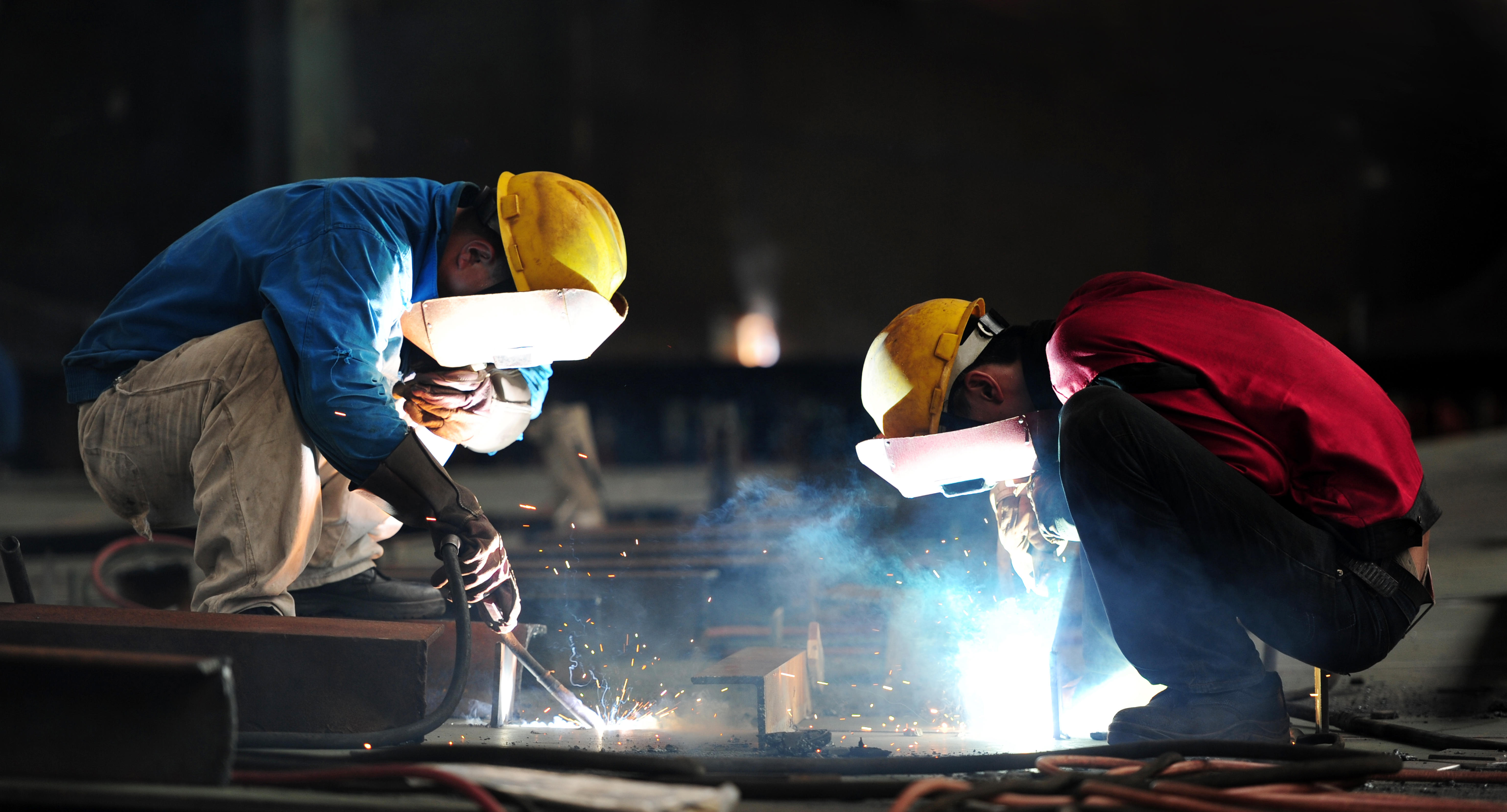Trump should have just gone full China on steel
Want to rescue a steel industry? Don't throw up tariffs — supply funds.


A free daily email with the biggest news stories of the day – and the best features from TheWeek.com
You are now subscribed
Your newsletter sign-up was successful
President Trump's recently announced tariffs may apply to all steel coming into the country, but there's no doubt who the real target is: China. Unfortunately, because Trump's steel tariffs apply to all imports, they risk doing collateral damage to allies as well as some domestic industries.
Trump had other options. Indeed, he could have learned a thing or two from his bête noire to the east.
America's steel problem with China is really everyone's steel problem with China. In the last 25 years, China's steel production grew 12-fold, while Western countries' production either plateaued or fell. China now produces nearly half of the world's steel, and consumes almost as much.
The Week
Escape your echo chamber. Get the facts behind the news, plus analysis from multiple perspectives.

Sign up for The Week's Free Newsletters
From our morning news briefing to a weekly Good News Newsletter, get the best of The Week delivered directly to your inbox.
From our morning news briefing to a weekly Good News Newsletter, get the best of The Week delivered directly to your inbox.
China has accomplished this feat through a weird hybrid of capitalism and state-run enterprise. Critically, the primary motive of the country's steel industry is not profit but employment. Desperate to avoid the kind of mass layoffs that could spark civil unrest, China can produce steel and sell it at a loss on the global market. And workers elsewhere — in Mexico, Europe, and America — have to eat even bigger losses to make up the difference.
There are a few ways to deal with this problem.
The first is to try international negotiations. The Obama administration and other Western governments actually gave China plenty of grief over this sort of behavior, which reached its height in the aftermath of the 2008 financial crisis. But the Chinese government played coy about the effects of its economic policies, and responded with bluster to the threat of tariffs. It still does.
The second option is to call that bluff and impose more tariffs. This is what the Trump White House just did.
A free daily email with the biggest news stories of the day – and the best features from TheWeek.com
Unfortunately, Trump's decision was slapdash, and made brazenly dishonest use of a trade policy exception meant for rare national security needs. You can debate its economic merits (the horror that's greeted the move around the world is arguably overblown), but even under ideal circumstances, tariffs are a messy policy solution. The president is basically jacking the price of steel up enough to force existing domestic buyers to turn back to domestic suppliers. That could be painful for many companies that use steel.
This brings us to option three. China's government steps in to directly help their domestic steel industry. Why not take a cue and do the same here?
Much of China's steel production and other industries are heavily owned by the government, and lent to by government-owned banks. When its steel businesses run into trouble, China uses its banks to keep them afloat while they produce steel and sell it at a loss; in an American-style system, the losses would simply force steel factories to close.
The United States shouldn't copy this setup exactly, nor does it need to: The basic problem is that there's too much supply of steel and not enough demand. America's policy toolkit is quite capable of increasing that demand without having to own businesses outright.
A corporate tax credit for buying American steel would be a good start. More specifically, the Trump administration is working on a (flawed) new bill that would incentivize state governments and businesses to take on more infrastructure projects. Trump could insert a "buy American" clause in there — i.e. you only get federal funding if you buy your steel (or other resources) from U.S. suppliers. An even better idea would be to just drop one trillion dollars (or more) in direct federal investment in infrastructure, as Bernie Sanders proposed in his presidential campaign. The key here is the government either does the additional buying itself or subsidizes the additional buying, rather than financing more production that has to find buyers.
This demand-side approach would use a lot of steel. U.S. steel producers already operate well below capacity, and could easily expand supply to meet the new demand. That would hold down the domestic price of steel — an improvement over Trump's tariffs. It's cleaner and less disruptive to the domestic economy, to trade, and to international relations to just supply additional domestic demand directly.
So why doesn't Trump do this instead of tariffs? My guess is he's too surrounded by Republican advisers to even realize it's an option. Meanwhile, the center-left-right consensus that gave us the modern global trade regime has its own blinkered obsession with balanced budgets and "market principles."
As a result, the Chinese continue to get the best of our president, in more ways than one.
Jeff Spross was the economics and business correspondent at TheWeek.com. He was previously a reporter at ThinkProgress.
-
 What are the best investments for beginners?
What are the best investments for beginners?The Explainer Stocks and ETFs and bonds, oh my
-
 What to know before filing your own taxes for the first time
What to know before filing your own taxes for the first timethe explainer Tackle this financial milestone with confidence
-
 The biggest box office flops of the 21st century
The biggest box office flops of the 21st centuryin depth Unnecessary remakes and turgid, expensive CGI-fests highlight this list of these most notorious box-office losers
